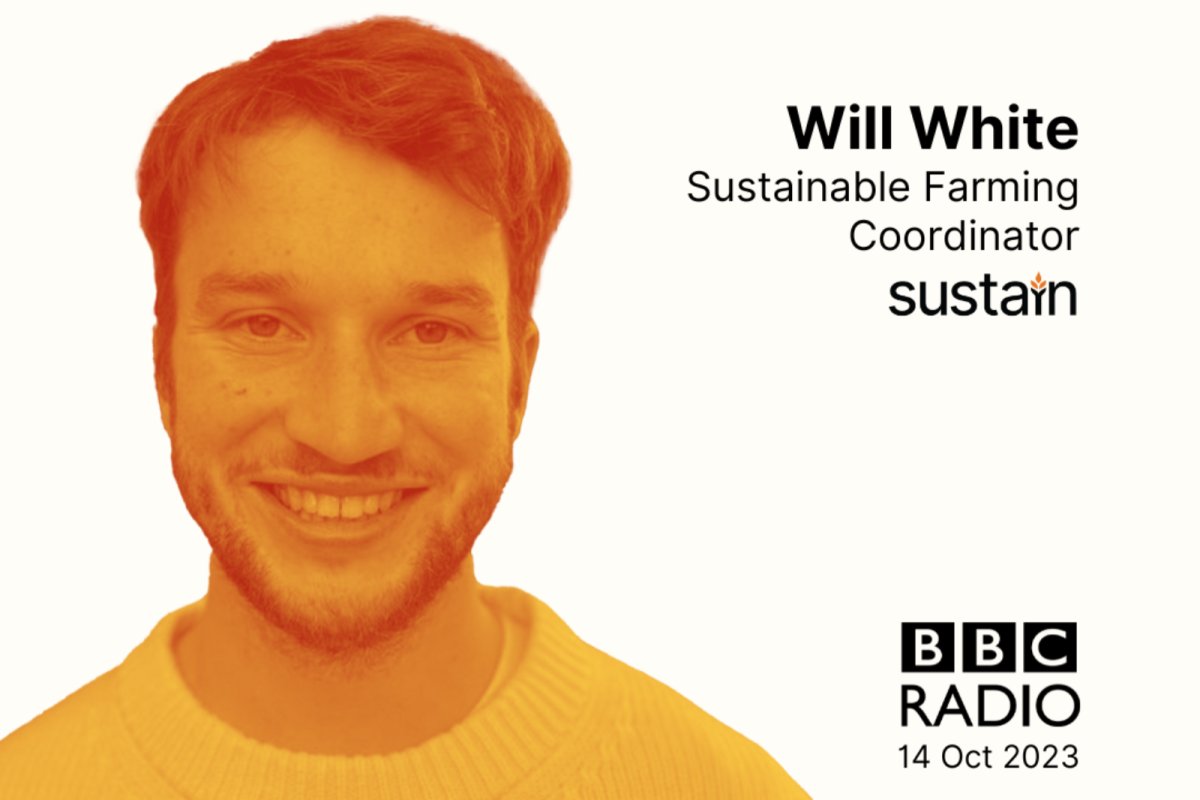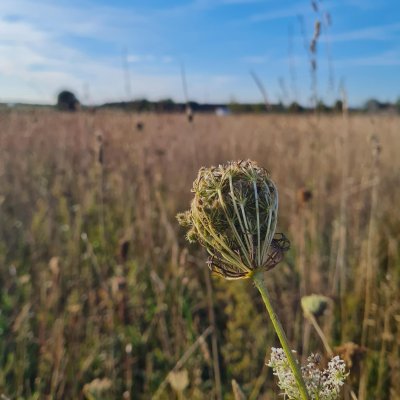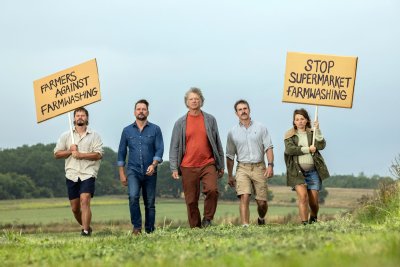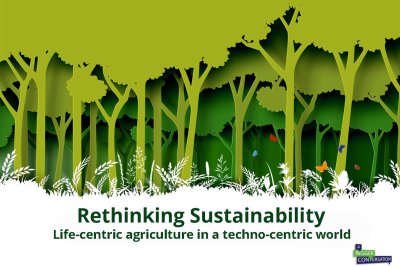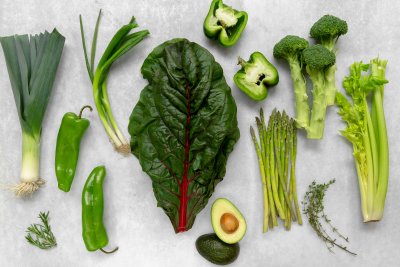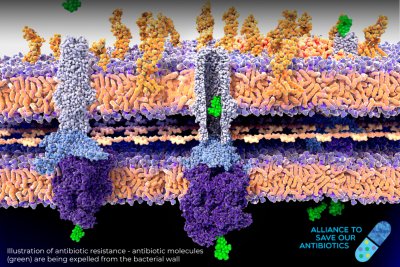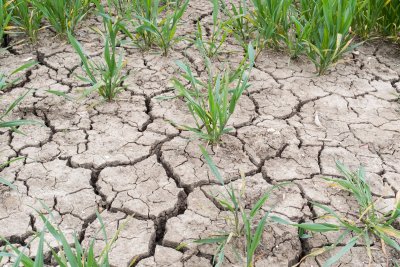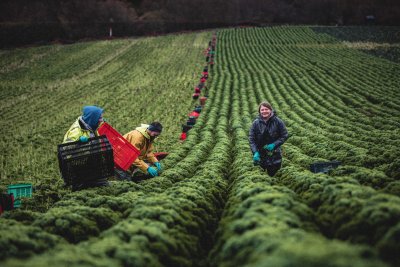On the Caroline Martin breakfast show on BBC Radio Gloucestershire, our Farming Coordinator Will White was asked about the importance of British farming practices and why Jacob Rees Mogg's recent comments were problematic.
Jacob Rees-Mogg, the Member of Parliament representing North-East Somerset, sparked controversy this month when he declared at the Conservative Party conference: "I want cheaper food, I want hormone-injected beef from Australia."
A coalition of Somerset farmers from his constituency hit back in an open letter backed by Sustain, accusing him of undermining British farming values that protect environmental and animal welfare standards.
Listen to full interview from 1.08.29 to 1.15.10.
Transcript:
Caroline Martin:
Now farmers across the West listen up, because this might be of importance to you. A group of 11 Somerset farmers who operate in the same constituency as Jacob Rees-Mogg have written to the former minister, accusing him of undermining British farming values. Will White is the Sustainable Farming Coordinator at Sustain, and they call themselves the Alliance for Better Food and Farming. Now, I asked him, why do we need to protect farmers against badly negotiated trade deals?
Will White:
Well, after Brexit, we're going to be negotiating more and more trade deals, and some people, such as Jacob Rees-Mogg, are calling for hormone injected beef to be imported from Australia or Canada. And this is a practice which has been banned for over 30 years now due to carcinogenic effects, negatives on animal welfare. Now, if we allow that to flood our market, that will completely undermine the animal welfare standards which are being upheld by British farmers at the moment. And we don't want to undercut them essentially.
CM:
So do you feel it's one rule for you and another for them?
WW:
Well, that's completely it, exactly. I mean, and also at the moment, farmers are going through a transition. I mean, how can you ask farmers to improve their standards, spend more on animal welfare and environmental standards while producing foods for the nation, if then you're just going to flood supermarkets with cheap, hormone injected beef? I mean, it just doesn't add up.
CM:
When you talk to the average person in the street, what are you hearing from them about the food that they eat?
WW:
I think it's actually a time of change. I think people are starting to realise what a bum deal farmers tend to get. I mean, for instance, a packet of four burgers sold in a supermarket for £3.50, the share of the profit the farmer gets is actually 0.1p while the supermarket gets over 70 times that profit. And I think people are realizing that cheap food doesn't add up to the environment, it doesn't add up to animal welfare and it doesn't add up for the farmers. So I think the public are starting to realise that although we need healthy food for everyone at a good price, we also need it to be part of a fair and just system in farming.
CM:
I do think that more and more people now are looking into what they eat because there was a time, I think, that you just went to the supermarket and it was priced, it dictated it, and a lot of that is still true. I know we've got a cost of living crisis, but I do think you are looking more into, you know, what has gone into this. How did it get to this point and what am I eating here?
WW:
I mean, I completely agree. I think people know intuitively something's wrong when a pint of milk costs less than a bottle of water or a chicken costs less than a full pack of beer, for instance. People know there's something wrong about the food they're eating when it's that cheap. And I think people are starting to wake up to the fact that we need a better deal for farmers and a better deal for the environment.
CM:
Yeah, I went to a butcher's, never ever used to go to a butchers, but I did start going to a butchers and I realized that actually this bit of meat that I was cooking, it was the same size as when it started, you know, to me, as opposed to sometimes you will go and get something and yes, you've got it a little bit cheaper, but it seems to shrink to nothing.
WW:
Yeah, Yeah, but you're dead right, I think I agree with that.
CM:
Now I know that, you know, we've got to kind of spread this word - there needs to be a fair deal for farmers, but we are also going to have people that just say, you know, they've got to go for the cheapest that they can get. It's the only way that they can feed their families.
WW:
I mean, yeah, I completely empathize with that. I mean, that that system isn't working for anyone. But I guess the point is that farmers could get a higher share of the profit without a massive increase to the retail price. You know, if we're talking less than a penny here and also cheap food isn't actually cheap, it's incredibly expensive in terms of its cost to the environment and it costs to local economies too. So, I mean, it's a bit of a one dimensional view to say we just need the cheapest food possible at any cost. The hormone-injected beef for instance, the cost to human health, the environment, animal welfare, far outweigh that small saving on the retail shelves.
CM:
When it comes to farmers, I come from a farming background, my family were farmers, I think that sometimes people are in ignorance of the hard work that goes into it. And also the the backbreaking work sometimes and the frustration when things don't always go as planned. Do you think that more people should kind of like be aware of, you know, what you go through to get the crops out there and to, you know, raise the cattle. Do you think that there's enough sort of like emphasis on that?
WW:
I don't think there is, to be honest, because, you know, farmers take a lot of the risk and some of the risks they can't control because of the weather. And they get a tiny proportion of the profit because we've got a kind of broken supply chain. They take all the risk work that do a lot of their hard work and then don't get much of the profit. And I think it's important that people engage, engage with the food and connect with who's producing it.
CM:
And there have been certain TV programs I think that highlight a bit of the plights of farmers.
WW:
Yeah, definitely. I mean, I think it's it's definitely gaining awareness. Riverford has a great campaign called Get Fair About Farming, that's all about trying to get a fairer deal for farmers and stop them being kind of preyed upon by predatory style contracts from supermarkets, etc..
CM:
Now it's October. So what is key in farming at the minute? What is it that people are up to?
WW:
in Somerset, there's a lot of fruit harvesting going on. I used to manage vineyards in Somerset, so it's just it's a lot of the grapes coming off the vine, and apples and pears, etc..
CM:
Well, at some point you need to come come back on and tell us about the vineyards.
WW:
It's been a good year for English wine that's for sure!
CM:
Is it really? Because there was a time it was sniffed at a little bit, is it coming into its own now?
WW:
Oh yeah its gaining respect now, especially English white wine and English sparkling white wine. In the West Country right now its gaining, used to be more in the South East but there are some great wines from Somerset and Devonshire.
CM:
Will it's been lovely talking to you, thank you very much indeed.
WW:
Thank you very much indeed. Thank you very much cheers.
Sustain: Sustain The alliance for better food and farming advocates food and agriculture policies and practices that enhance the health and welfare of people and animals, improve the working and living environment, enrich society and culture and promote equity.
